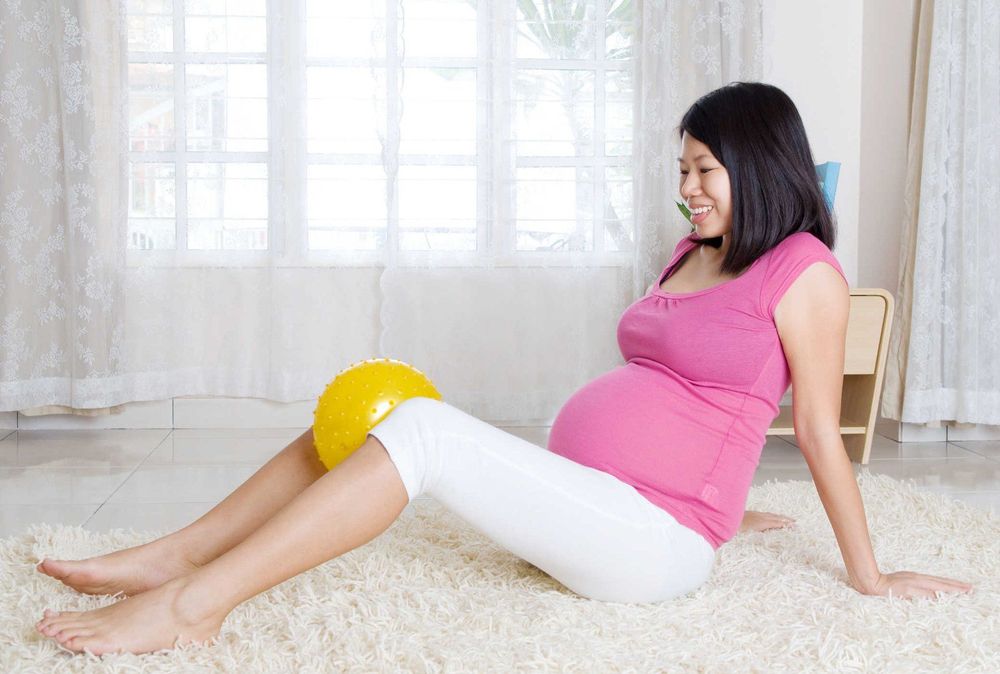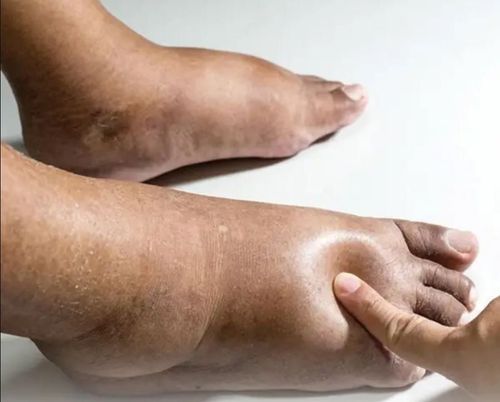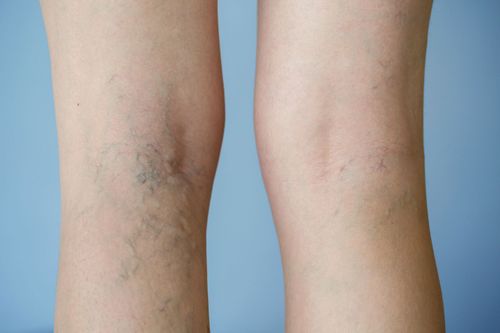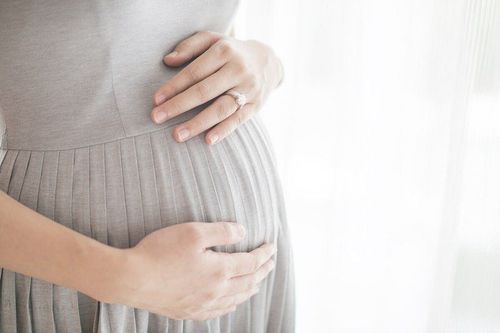This is an automatically translated article.
The article is professionally consulted by Master, Doctor Nguyen Thi Hong On - Obstetrician and Gynecologist - Department of Obstetrics and Gynecology - Vinmec Phu Quoc International General Hospital.Pregnancy is a time when a woman's body has a lot of changes, in which leg swelling during pregnancy is a very common phenomenon. So why do pregnant women often have leg swelling, what can pregnant women do to reduce leg swelling?
1. Causes of leg swelling during pregnancy
There are many different factors that cause edema (not only the legs during pregnancy but also the hands and face) in a woman during pregnancy:
During pregnancy, the body produces produces about 50% more blood and body fluids than usual to meet the needs of the developing fetus. Not only does it produce more blood and fluid, the body also reabsorbs and retains more fluid than usual, with the aim of softening the body, making it easier for the body to adapt when the fetus is large. progressively, while helping to prepare the pelvic floor tissues and joints to expand at the time of labor for delivery. The uterus grows larger (as the fetus grows), putting pressure on the veins, affecting the flow of blood through the veins back to the heart. Hormonal changes also play a role.
Trắc nghiệm: Bạn có hiểu đúng về dấu hiệu mang thai sớm?
Các dấu hiệu mang thai sớm không phải chỉ mỗi trễ kinh mà còn có rất nhiều dấu hiệu khác như xuất huyết âm đạo, ngực căng tức,… Điểm xem bạn biết được bao nhiêu dấu hiệu mang thai sớm thông qua bài trắc nghiệm này nhé!
2. At what point of pregnancy will a woman experience swelling in her legs?
In fact, pregnant women can develop swollen feet at any point during pregnancy.
For the first trimester of pregnancy: A woman may experience slight swelling in her legs, arms or face; If you see a lot of edema at this stage, especially accompanied by other symptoms such as dizziness, headache, bleeding, ... you need to see a doctor immediately. With the second trimester of pregnancy: The second trimester is the time when the swelling can be clearly seen, but usually leg edema during the 5th month of pregnancy and onward is very common, unless the pregnant woman stands a lot or the weather is hot. With the third trimester of pregnancy: This is when the swelling of the legs during pregnancy appears most clearly, and is most common. The closer you get to the time of labor, the worse the leg swelling will get, and usually a few days to a few weeks after giving birth the swelling will go away on its own. Factors that can affect a woman's edema during pregnancy include:
Hot weather Having to stand for long periods of time Doing physical activities that last for many days Low potassium diet Diet Consume a lot of caffeine Consume a lot of sodium

3. In which case you need to see a doctor?
Edema in general and leg edema during pregnancy in particular is a very normal and common phenomenon, nothing to worry about. Usually after a few days to a few weeks, the swelling will disappear on its own without any intervention. However, swelling can also be a sign of something more serious, such as pre-eclampsia, so see your doctor right away if the following signs appear:
Edema comes on suddenly in hands, feet, face or around the eyes, the degree of aggravation rapidly. Dizziness or blurred vision. Severe headache Unconsciousness. Shortness of breath. If you notice that edema appears only on one leg, accompanied by signs of pain, heat, and redness, pregnant women should be alert to having deep vein thrombosis (DVT). The risk of blood clots in pregnant women is higher than in the general population. Ideally, if in doubt or unsure about any of these signs or symptoms, consult a specialist.
4. What can a woman do to limit leg swelling during pregnancy?
Edema in general, and leg swelling in particular during pregnancy is a normal, common phenomenon, and usually disappears on its own after giving birth. During pregnancy, to reduce these phenomena, pregnant women can:
Reduce pressure on the legs: Pregnant women should not stand for too long, stand for a long time. While sitting, prop your feet up, and regularly rotate your ankles and gently flex your feet to stretch the twin muscles in your legs. Elevate your legs when lying down. Sleeping on your left side: Sleeping on your left side is the best position to avoid putting pressure on the inferior vena cava (a large vein that carries blood from the lower body back to the heart). The results will be even better if you put more pillows under your feet to slightly raise your legs. Use pressure socks: Your doctor may recommend wearing support pants or pressure socks during the day for women who are pregnant. Be physically active every day: Walking, cycling on a stationary bike, or swimming are very good physical activities for pregnant women. Standing in water or walking underwater (in a pool): There is currently little research on the use of water pressure in cases of foot swelling, but standing or walking in water appears to have a pressurizing effect. to the tissues of the legs and may reduce swelling temporarily during pregnancy. Wear loose-fitting clothing: Tight clothing can restrict blood flow, so tights and tights should not be worn on the calf muscles. Follow a balanced and nutritious diet, reduce sodium intake, increase the use of potassium-rich foods, and limit the consumption of foods and beverages containing caffeine. Some research suggests that foot massage and reflexology (essentially applying pressure to certain areas of the foot) may help reduce leg and ankle swelling during pregnancy. Reducing water intake is not helpful in preventing leg swelling during pregnancy. The Institute of Medicine recommends that pregnant women drink about 2.4 liters of water per day.

Department of Obstetrics and Gynecology - Vinmec International General Hospital is highly appreciated by pregnant women for the quality of service, professional qualifications of doctors, facilities and professionalism. Vinmec offers pregnant women a variety of comprehensive maternity care packages to help protect you comprehensively before - during - after giving birth.
Vinmec's Obstetrics and Gynecology Department is closely linked with other specialties such as dermatology, endocrinology, cardiology, gastroenterology... so when you have diseases during pregnancy, they are monitored, examined, and treated. overview. If you need to be examined, treated, or used the package maternity care program at Vinmec, please book an appointment directly at the website or contact the hotline for detailed advice.
Please dial HOTLINE for more information or register for an appointment HERE. Download MyVinmec app to make appointments faster and to manage your bookings easily.
Reference source: nhs.uk/ healthline.com/ americanpregnancy.org












